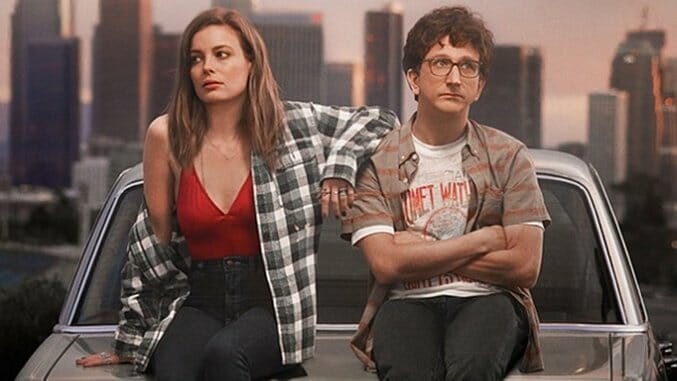Love and the Overwhelming Whiteness of Judd Apatow’s Work

There’s a lot to love about Love.
The new Netflix comedy from writers/co-creators Paul Rust, Lesley Arfin and Judd Apatow is a terrifically funny series, using well the weird and surprisingly alluring chemistry of its leads (Rust and former Community cast member Gillian Jacobs). The cast is fleshed out with an impressive coterie of comedic talent like Aussie import Claudia O’Doherty, stand-up kings Kyle Kinane and Eddie Pepitone, and improv geniuses like John Ross Bowie, Brett Gelman and Seth Morris.
Even better than the cast is the writing of the show. Love never uses Mickey’s struggles with sobriety for cheap laughs. As much fun as she has in one episode, tripping on sassafras with Andy Dick while on the L.A. subway, in the back of your head—and in the forefront of hers—is the knowledge that she should be in meetings or treatment. And like Girls, another series that Apatow helped shepherd into existence, the show is unabashed in its depiction of female sexual pleasure. Few other TV shows (or non-XXX films, for that matter) would dare let Jacobs act out an orgasm on camera so realistically.
Above all of this, Love joins with Lena Dunham’s series, and shows like You’re The Worst and Casual, in honestly depicting the thrills, sorrows and inanities of modern romance. You have to wince at the honesty of what’s being portrayed because it cuts so close to what has surely happened to you or someone you know.
Unfortunately, another quality that it shares with those other three series is a cast that is overwhelmingly white.
-

-

-

-

-

-

-

-

-

-

-

-

-

-

-

-

-

-

-

-

-

-

-

-

-

-

-

-

-

-

-

-

-

-

-

-

-

-

-

-








































